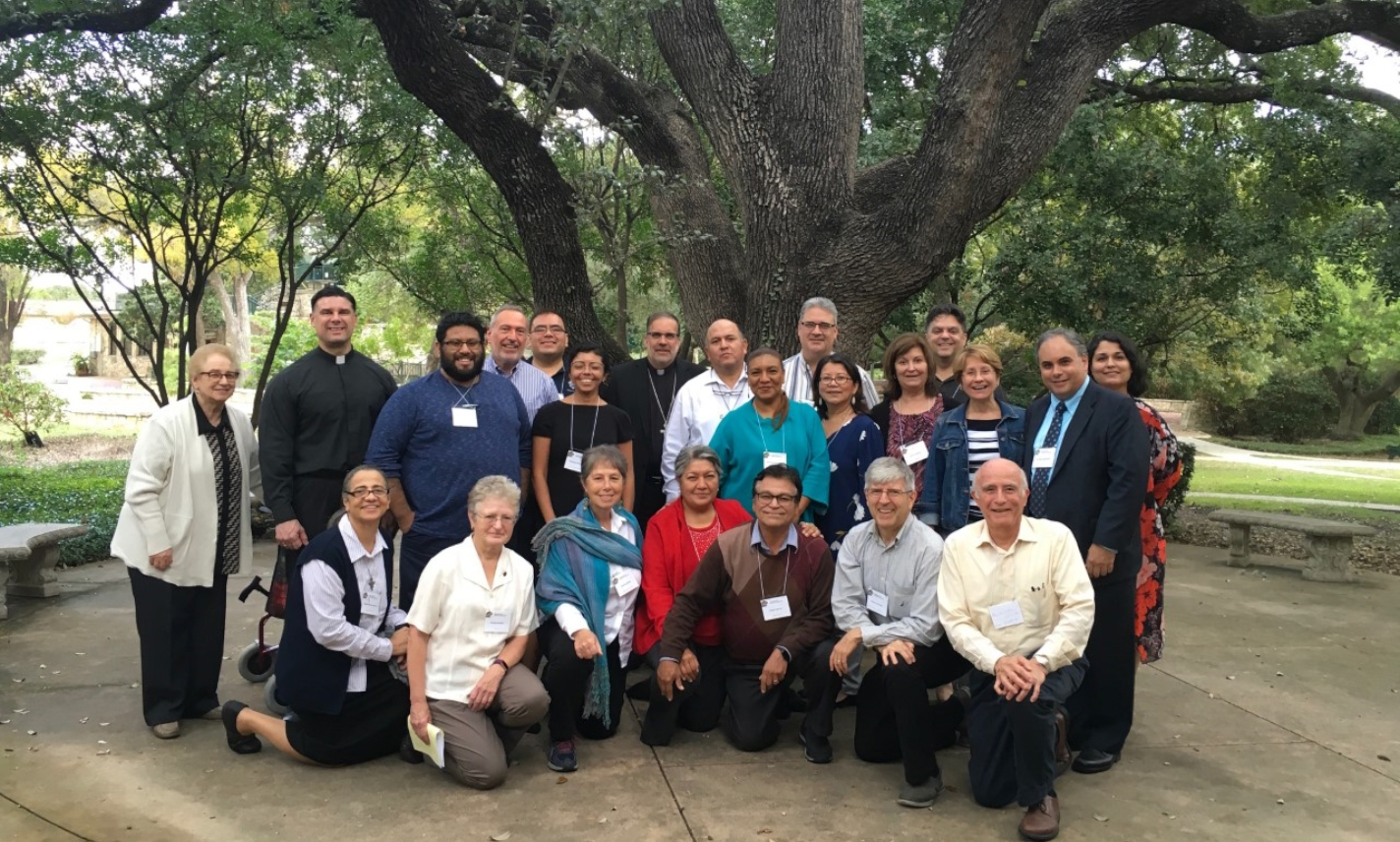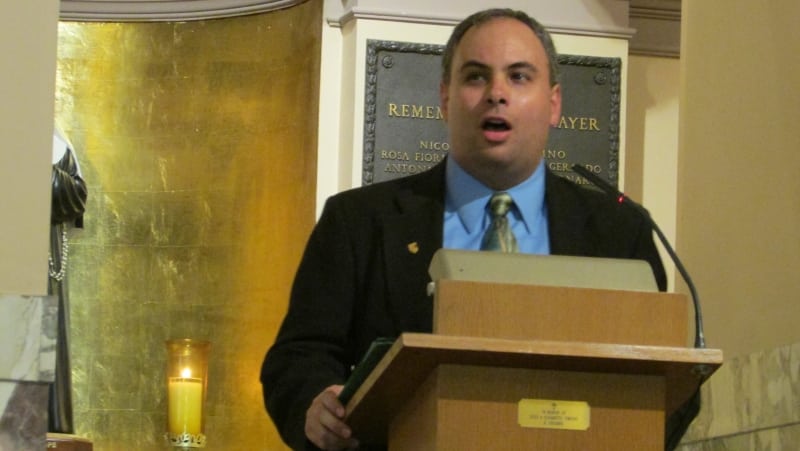As Director of Certification for Ecclesial Ministry and Service at the United States Conference of Catholic Bishops (USCCB), I have the opportunity to record video reflections on the readings of the Scriptures proclaimed at daily Mass. I do so as part of larger group of colleagues at the Conference, along with lay and ordained leaders from around the country. I am grateful for the opportunity to reflect on the meaning of the readings for the life of faith today and to share them here, along with the written text of the reflections. To view these video reflections for past and upcoming celebrations of the Eucharist, visit the USCCB website.
“Sanctuary” is a religious term. It means a holy place where worship of God is offered. Catholics will often speak of the area of the church that has the altar and ambo in it as the ‘sanctuary,’ though really the whole church building is the sanctuary, as are all the People of God themselves.
But we also know that term can indicate protection and safety from danger – a safe harbor, a refuge. We have heard the term used in circumstances of terrible violence around the world or in our own country. People seeks ‘sanctuary’ in places out of harm’s way when there are riots or civil unrest. In recent times with the abhorent increase in mass shootings in our own society, we hear people in terrible need forced to take ‘sanctuary’ in locked rooms while people with guns terrorize and kill family and friends. Other times the term is used more as a metaphor for a place people go if they are struggling with stress or difficult emotions – the place where they go physically, or even in their imagination, is a ‘sanctuary.’
And in today’s first reading from Ezekiel, the word ‘sanctuary’ is used by no less than the Lord God in a way that implies both meanings. God promises to re-gather the exiled Israelites and bring them home, heal them and forgive their sins. God says he will set up ‘sanctuary’ among them forever. God’s dwelling will be with them and God will make a covenant of peace with them. A beautiful image of the promises of God to biblical Israel, which have been spiritually extended to all of us who are Christian, because of our faith in Jesus Christ.
Today’s Gospel, interestingly, isn’t about Jesus preaching or teaching. Instead, Jesus is being spoken about by the religious leaders – some of the scribes of the Temple and the Pharisees, as well as the high priest. And it seems that by the end of the Gospel passage Jesus himself is in need of ‘sanctuary’ – protection and safety from those who have determined that he is a threat to the country and to their authority. “If we let him alone the Romans will come and destroy us,” they say.
And Caiaphas, the high priest, says it is better for Jesus to die than for all of the country to be destroyed. The Gospel of John, ever rich with symbolism, reminds us that Jesus would in fact die – and we are getting ready to commemorate his passion and death, as Holy Week begins tonight with the Vigil of Palm Sunday. Jesus would die – and instead of destruction, the people of Israel and ALL the dispersed children of God would be gathered into one.
The plot to kill Jesus forced him into hiding – and, of course, we know he endured great suffering because of their sins and ours. But the promise of Easter reminds us that, in showing us the way of love in the face of hatred, Jesus has ‘turned our mourning into joy and gladdened us after our sorrows’ as the psalm says. Our sanctuary is no longer a place, but a person. The life of Christ is the act of God by which we are brought together and shown mercy – and that is an eternal sanctuary.
A fitting reminder as the commemoration of Holy Week is upon us once again – that it is to the mission of being sanctuary for others in need that we, too, are called as the holy People of God – as Jesus is for all of us.
God give you peace!


 Request Dr. DelMonico's professional services for a liturgical, ministerial or leadership consultation, or for an academic or public presentation.
Request Dr. DelMonico's professional services for a liturgical, ministerial or leadership consultation, or for an academic or public presentation.